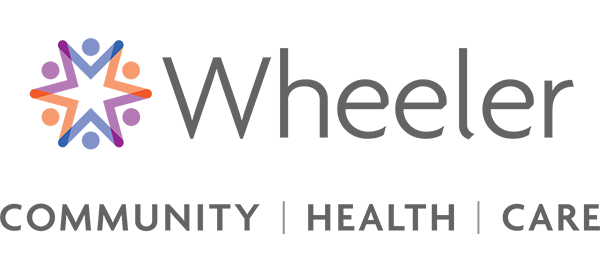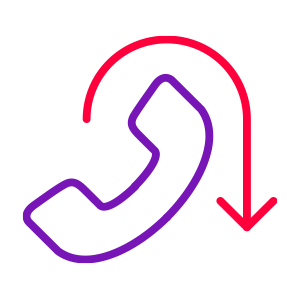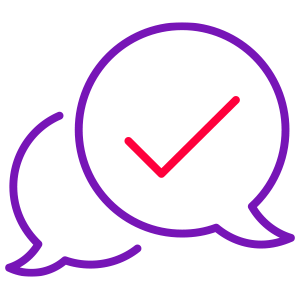




Wheeler Health is a nonprofit community-based federally qualified health center, human services provider and therapeutic day school that provides services across Connecticut. Every year, residents from more than 90 percent of Connecticut’s cities and towns use some Wheeler service.
Before implementing Artera, Wheeler primarily used phone calls – and NextGen’s phone call reminder system – to reach out to patients. With over 220,000 annual visits and 30,000 patients, however, the FQHC knew they needed something different: a patient communication platform that modernized communication and offloaded stress from its navigation center staff.
Given most communication was taking place via phone, staff members encountered extremely high call volumes, leading to inefficiencies, an increased workload and many abandoned calls. In addition to reducing call volume, the organization also wanted to improve patient experience and satisfaction by offering more convenient and accessible communication methods such as texting.
After evaluating various platforms, Wheeler landed on Artera and officially went live in May 2023. The health center’s broader strategy – to automate routine messages, eliminate phone calls and enable patients with more self-service options – aligned well with various Artera features.
Today, Wheeler utilizes Artera’s Conversation Builder, Recalls, Broadcasts, Conversational Messaging and more. The health center has strategically built a robust set of use cases for the features, creating new and exciting ways to streamline communication:
According to Dan Herens, Vice President of Information Technology at Wheeler, the organization’s goal with many of these features is to simply “eliminate a phone call or text for something that the patient can get answers to on their own without having to interact with someone.” This not only makes it faster for the patient but leads to fewer calls for the staff. “It’s not about eliminating human interaction,” said Herens. “It’s more so about reducing cumbersome tasks to focus more attention on the patients who truly need to talk to someone.”

While introducing new technology into an organization can require an adjustment period, Wheeler staff have grown accustomed to the Artera platform and text-based interactions with patients. “Given the flexibility with conversational messaging, the staff can now have numerous conversations at once and help more people at the same time,” said Herens.
As for the patients themselves, Herens is confident they are also satisfied with the ability to text in: “I believe a lot of patient behavior is demonstrated by how often they use something, and they use it a lot. The number of patients texting in and the number of calls coming in are going in opposite directions, and that’s exactly what we’re looking for,” said Herens.
Beyond patient and staff satisfaction, the strategic utilization of features has enabled the health center to see great results since going live. Over 12 months (April ’23-’24), Wheeler has seen a substantial improvement in its call volume, tracking a 20 percent reduction YOY (from 15,000 calls per month to 12,000), leading to an estimated $60k in cost savings and 2.4K of staff time saved. Abandonment rates have also seen a significant decrease, improving by 58 percent YOY.
“Effectively, we’re receiving fewer calls but handling even more with the same staffing level we have today – and when we reduce the number of overall calls, we also reduce the number of abandoned calls,” Herens said.
Outside of looking at call volume and no-show rates, according to Herens, “It’s about the communications system as a whole: ultimately we’ve seen more services occur. If patients are able to get through to our call center more quickly, that means we’re able to get more people into care faster as well.”
Having an increased cadence of reminders and touchpoints also enables the patients to respond better as well, according to Herens. This translates to the health center’s confirmation and response rates, which have both seen a 10 percent increase over the past year.
To regularly retrieve and track this data, Wheeler uses Artera Analytics Plus, as well as its own robust data system – something they have been building on and using to inform their business decisions for years.
“Our use of data is quite extensive when it comes to decision-making. With the data sourced via Artera’s Analytics Plus, it improves our ability to intelligently reach out to patients and we use the data to refine our messaging strategy,” said Herens.
As for the analytics piece, Herens’ team is focused on tracking patient behaviors or common patient inquiries: “We’re able to download the content of text messages, determine what type of questions patients are asking and how we’re responding to those questions. That analysis can lead to improving the use of Conversation Builder, helping us identify commonly asked questions to which we can then create automated responses to,” said Herens. “There’s a lot we can do with the data that’s available to us.”
As a forward-thinking and innovative organization, Wheeler is constantly seeking new ways to improve its operations, streamline processes and improve the patient experience. This aligns to Wheeler’s recent decision to transition to Artera Harmony, where the organization is looking forward to gaining access to Artera messaging APIs and ultimately unifying its patient communication.
With greater visibility into all patient communications, Wheeler will be able to better manage and track interactions with patients, leading to more effective communication and improved patient satisfaction. “Artera Harmony opens up avenues for us to add additional phone numbers and texting queues while still maintaining an overarching, holistic view of communications so our call center staff are able to see all messages going out to patients in one place,” said Herens. “Having the ability to review messaging data and build out rules for message cadence, priority and timing will help us reduce over-messaging and likely optimize engagement.”
As the partnership continues to expand, Wheeler is confident in our future together: “It’s been a great relationship so far and we get immediate responses from Artera staff when we need to touch base.” As for Artera’s product roadmap, Herens is excited about where we’re headed: “Artera’s product is going in a nice direction, it’s really in line with what patients are expecting today, and I anticipate there will be even more technology updates in the future that will further reduce staff workload and increase efficiencies.”


